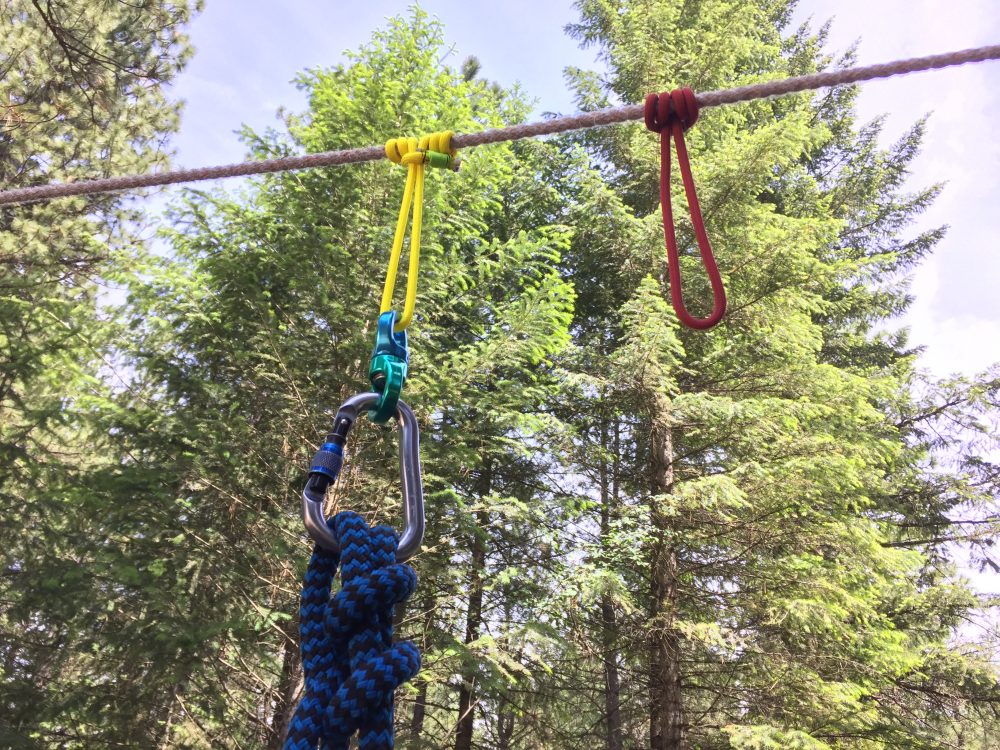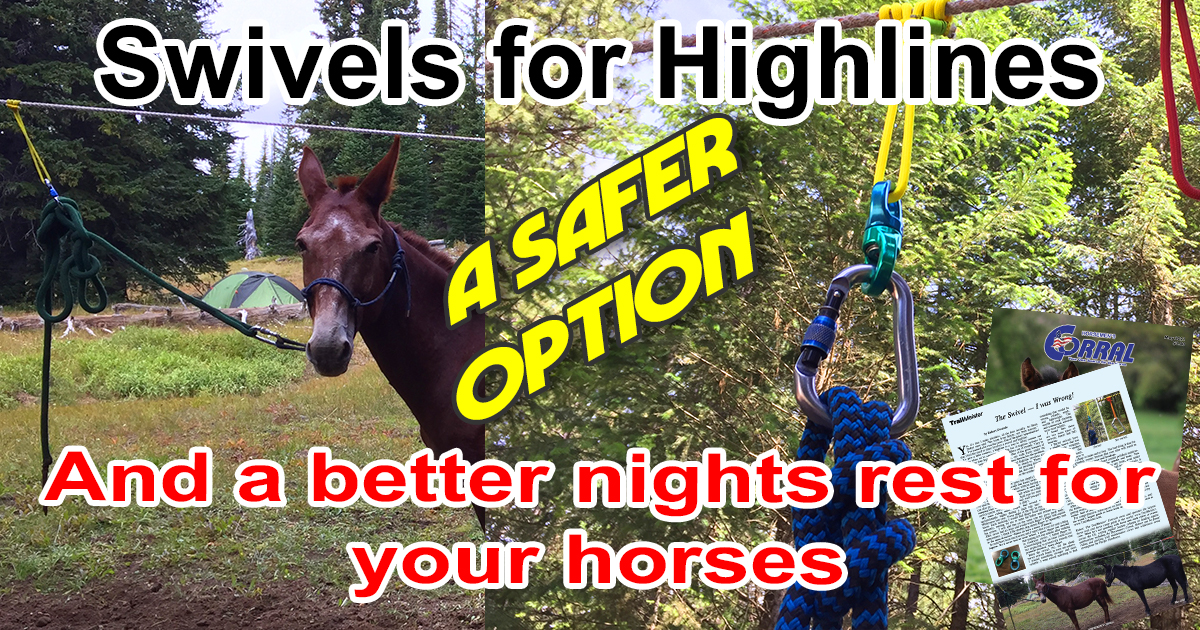Swivels for Highlines – I WAS WRONG!
As published in the Horsemen’s Corral, May 2021 edition
Yes, it’s true I make mistakes, all the time actually. As Bram Stoker once said “We learn from failure, not from success.” I’ve learned a lot over the years. One of the latest “Opportunities” that I feel the need to share involves a swivel and highline.
To give a little context a highline is a way to safely contain our critters when we’re camping. I’m a big fan of highline systems for keeping our four legged mischievous toddlers out of trouble. They’re simple in construction and easy to use. One of the great bonuses of a highline is that your horse, or mule, can walk freely under the highline. That entails going in circles. And therein lies the problem.
The connection point between critter and highline involves some sort of anchor point for our pony’s leads to attach to. There are a myriad of gadgets for this application. Patent pending thingamajigs, rings, and all of sorts of superfluous junk that does one thing and one thing only. My feeling is that uni-taskers are the antithesis of camping and have no place in my gear bag.
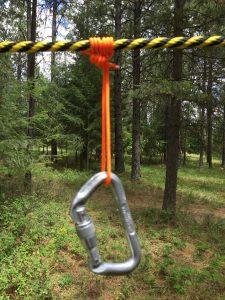 My highline connection point for years has simply been a length of climbing cord fashioned into a prusik that freely twists and untwists. With the prusik I can slide the anchor without having to loosen the highline, and I can tie one with shoelaces if needs be. For decades I’ve said that if my animals can turn left while on a highline that they can also go right. And by golly that held true for many years, more camping trips than I can remember and, well you get the idea. My no swivels for highlines system worked great. Until it didn’t.
My highline connection point for years has simply been a length of climbing cord fashioned into a prusik that freely twists and untwists. With the prusik I can slide the anchor without having to loosen the highline, and I can tie one with shoelaces if needs be. For decades I’ve said that if my animals can turn left while on a highline that they can also go right. And by golly that held true for many years, more camping trips than I can remember and, well you get the idea. My no swivels for highlines system worked great. Until it didn’t.
What happened to change my mind
My main riding mule, Ruger, had several very long, very uncomfortable nights during a pack trip into the Eagle Caps Wilderness last year. Every night of the trip he twisted his lead into knots. Each morning I would find Ruger’s head lifted high, standing patiently, waiting for me to untie his halter and release him from his prison. I will add that on the same trip my go-to pack mule, Ellie, never had an issue and would watch Ruger’s plight with equine amusement. I think Ellie double-dog-dared Ruger to repeatedly turn in the same direction – Mules do have a sense of humor.
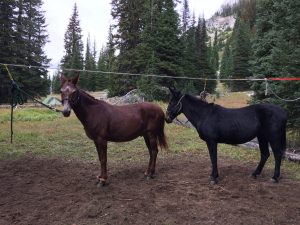
It could have been much worse and I regret that I ever let such a thing happen. He’d never had an issue before. I guess Ruger just decided that turning left was tedious after walking in clockwise circles. I failed Ruger in acknowledging that an issue could occur but neglecting to proactively remedy that potential situation. Sorry Ruger.
Enter the swivel. No, not the cheap barrel swivels found in most uni-taskers. I wanted something stronger and more reliable. I went swivel searching to find something that would be strong, reliable, small, and lightweight. The worlds of rock climbing and commercial arborists were most helpful.
What I found
I found that there are two main types of swivels; barrel and ball bearing.
- Barrel swivels have a middle barrel that has been loosely wrapped, or swaged, with another piece of metal that rotates around the barrel. The best part of these is the price. They’re cheap to make and to buy. The bad thing is that the metal-on-metal grinding creates friction that over time will result in problems, including premature wear and breakage.
- Ball bearing swivels on the other hand contain polished stainless-steel ball bearings positioned between the spindle and body. This enables the swivel to rotate freely, negating any twist, even under heavy load. The perceived disadvantage of ball-bearing swivels is their price. However, in certain situations — such as when our ponies are involved — you can’t afford not to use them. Here’s what I use – https://amzn.to/3f2KIZ0
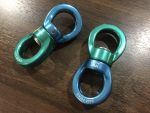 The comfort of Ruger and the girls is important to me so I went with climbing grade ball bearing swivels. These brightly colored beauties weigh little, spin like butter, and are significantly stronger (with a rating of 35kN, nearly 8,000 pounds) than other well marketed inline swivels.
The comfort of Ruger and the girls is important to me so I went with climbing grade ball bearing swivels. These brightly colored beauties weigh little, spin like butter, and are significantly stronger (with a rating of 35kN, nearly 8,000 pounds) than other well marketed inline swivels.
After adding a ball bearing swivel to each prusik loop that I anchor the bubbas to on the highline I haven’t had any issues with anyone getting twisted up. This makes for a better night’s rest of me and my mules. And of course, better nights make for better trips.
For comprehensive info on horse camping, Swivels for Highlines, and the world’s largest guide to horse trails and camps give us a visit at www.TrailMeister.com.
